Redistribution of board grants
Seven student associations to lose over 10,000 euros
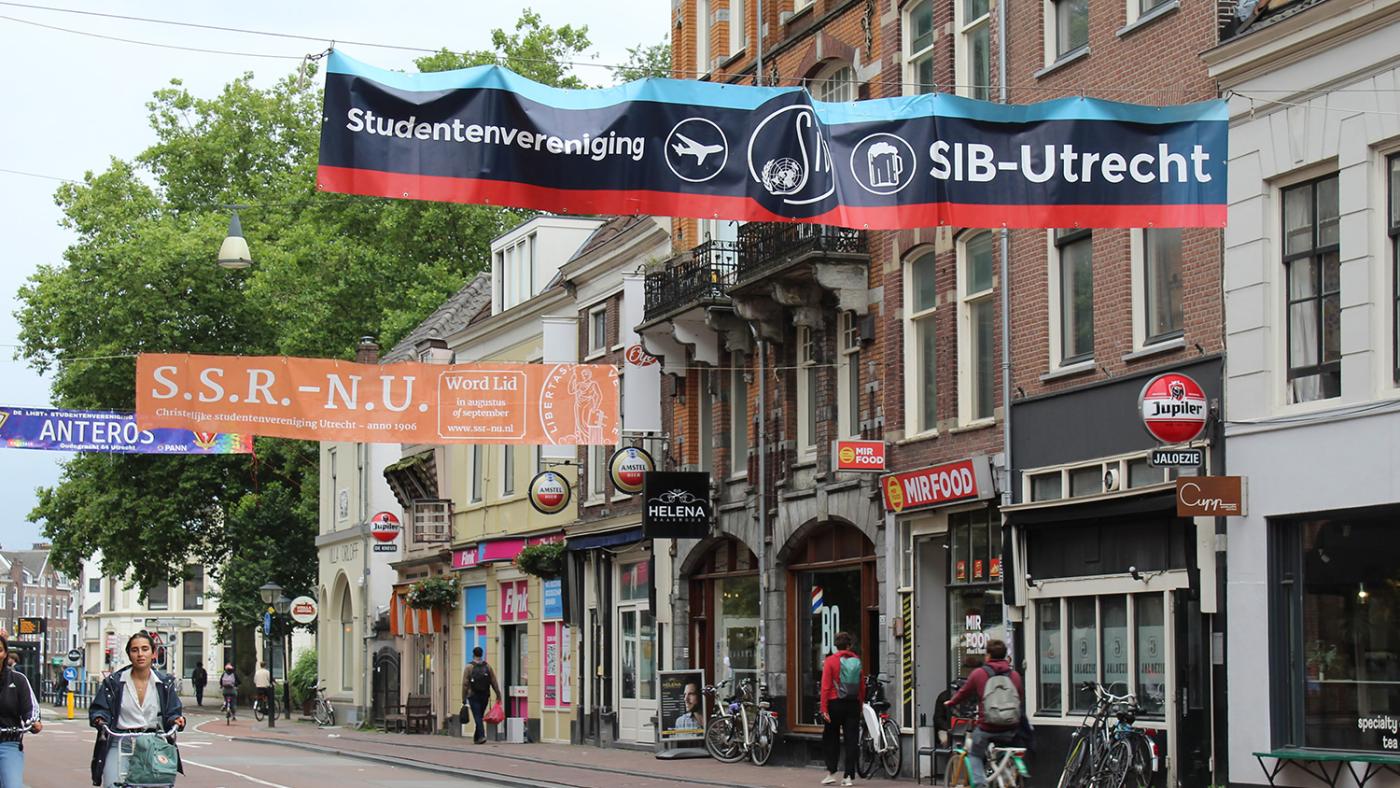
This is a bitter pill to swallow for SIB, the student association for international relations. Their board grants are being reduced by ninety percent, which amounts to a loss of about 22,500 euros annually. Moreover, their basic subsidy will also be lessened by 3,300 euros.
SIB is a small student association with about 150 members. It doesn't only include students from Utrecht University (UU) and the University of Applied Sciences Utrecht (HU), but also students from the vocational education level, the art school (HKU), and educational institutions in other cities. The association has a six-member board and organises biweekly “intellectual evening programmes” with lectures and debates.
“The events are in English so that international students can participate too. In addition, we try to ensure that our events are accessible for wheelchair users and that a sign language interpreter is present. All of that takes time to arrange,” says Lena van Duifhuizen, SIB’s chairperson.
The redistribution of board grants will hit SIB the hardest. Members of student association boards currently receive 370 euros each month but the grant will be reduced to 37 euros a month now. “This is threatening the very existence of our association. We're talking about a significant part of our budget. We’ll have much less money and time to organise activities, so we will be forced to axe many activities that make our association unique.”
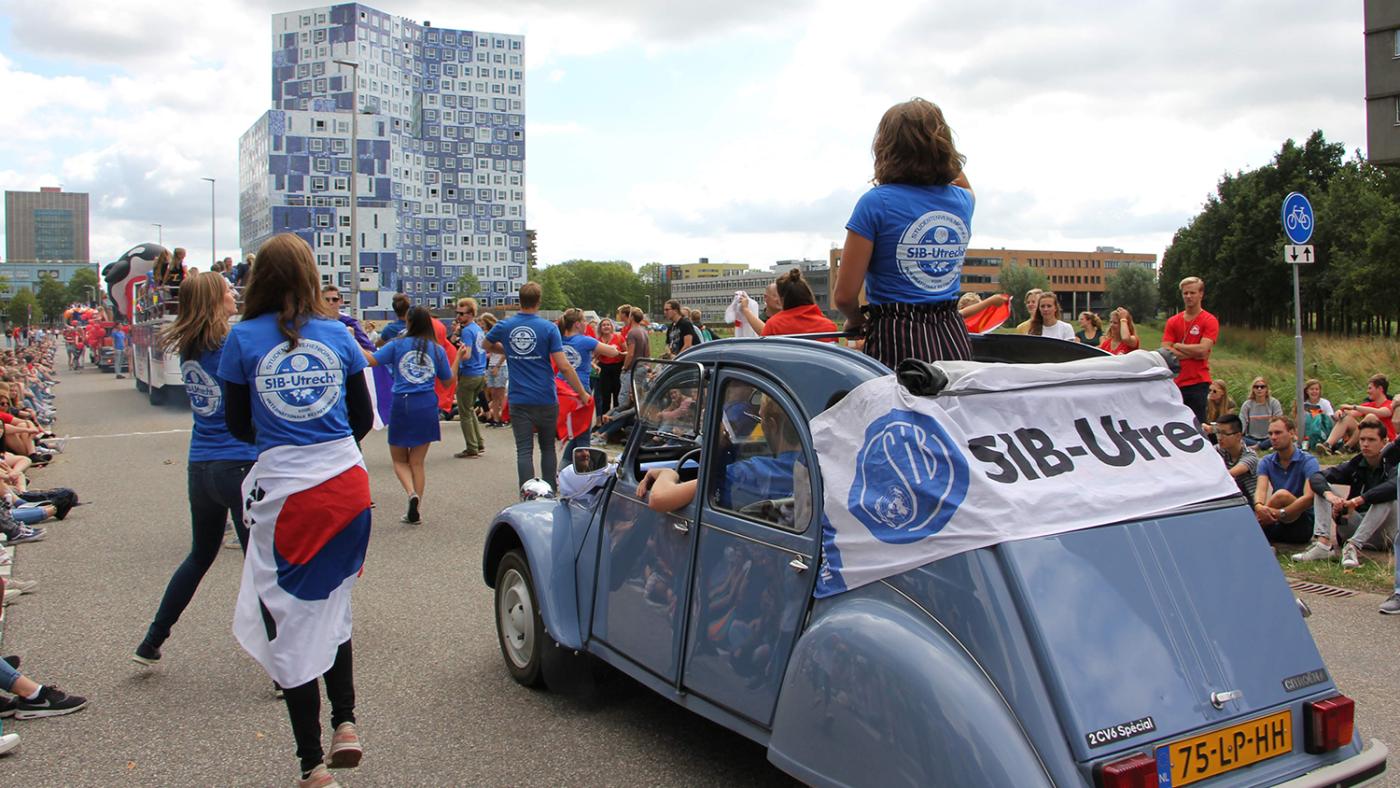
Opaque
Board grants are a financial contribution for students who serve on the board of a student organisation recognised by UU and HU for a year. This includes social, sports and cultural associations. In addition, student organisations can receive a basic subsidy to organise "socially relevant" activities aimed at students' personal development. In the new system, associations can still apply for incidental funds to organise specific events or activities.
The educational institutions noticed that the fund-allocating system was perceived as unfair and opaque by some board members. The amount received by each organisation depended on the number of members, how many activities it held, and how many people attended their events, among other criteria. Exceptions were made sometimes, but these were considered subjective.
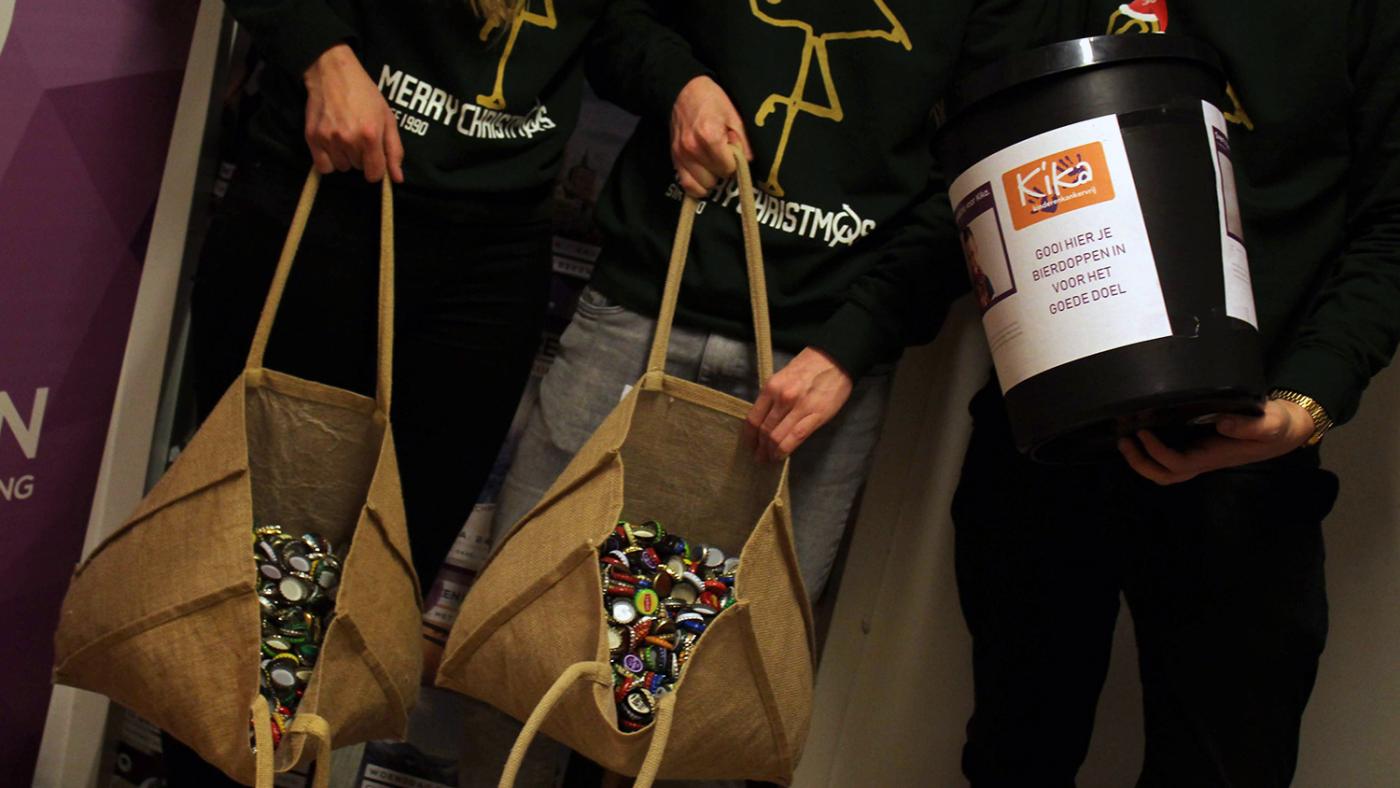
Number of members
That's why the system had to be simplified. From the next academic year onward, only two criteria will be considered: the number of members and whether or not the association owns a building. Associations that do have a building will receive an additional 10,625 euros in board grants.
The underlying idea is that boards of smaller associations have less work to do and therefore need less money. This measure is expected to make things more straightforward, as the associations will know how much money to expect based on their size.
The basic subsidy will also be calculated according to the number of members. Associations with up to five hundred members will get up to 3,500 euros, while those with more than five hundred members will not get this subsidy anymore. The reasoning: large associations already have more money, so they do not need the basic subsidy.
Thousands of euros
Although most of Utrecht's 71 student organisations will get more money thanks to the new system, seventeen will lose money. That's 25 percent of organisations. SIB, Veritas, Biton, SSR-NU, USConcert, USKO and Aiesec are among those that will lose at least 8,500 in board grants. USC, Triton, TC De Uithof, USHC, Odysseus and Van Slag will get considerably more.
The amount UU spends on board grants is set to increase by 17,425 euros to 677,875 euros in the new system.
Biton currently receives 29,750 euros in board grants. That will drop to 19,125 euros when the new system is introduced. They will also lose 2,000 euros worth of basic subsidies. Christian student association SSR-NU is going from 26,775 euros in board grants to 14,875 euros. Their basic grant will be lowered by 3,000 euros to boot. Veritas will go from 58,650 euros to 48,875 euros in board grants, not to mention it is set to lose its basic subsidy entirely because they have more than five hundred members. It is not yet known how much money the international student organisation Aiesec will receive. They are expected to lose out on both board grants and basic subsidies, totalling a financial loss of over 10,000 euros.
Six student organisations are going through the opposite situation: they will get much more money thanks to the new system. USC will get an additional 10,625 euros in administrative grants. Several sports clubs are making significant progress too, such as rowing club Triton (8,500 euros), tennis club De Uithof (15,725 euros), hockey club USHC (14,450 euros), football club Odysseus and volleyball club Van Slag (both 9,350 euros).
Setback
The associations lament the subsidy cuts. Veritas' president, Daan Paquay, says in a written statement that he does not agree with the new distribution system. Jette van Dam, his equivalent at SSR-NU, states: “We expected to get less money, but we didn't expect such a cut."
Aiesec's chair Martijn Schonk: “It’s not that we’re going under financially because of this, but it is a big blow.” Biton's president Sytze Hoekstra describes the board grant cut as a “shame”.
The student associations will have to make cutbacks due to this financial setback. SIB, Aiesec, Biton and SSR-NU don't think they will be able to organise as many activities. Committees will have to cancelled and board members will get less money each month.
SSR-NU's president announced that the association's board will shrink from seven to six members, while SIB is moving from a full-time board to a part-time board. Board members will have to compensate for the lost income by taking side jobs, according to chairperson Van Duifhuizen. This will result in board members spending less time on the association, which means they will not be able to organise as many activities as they used to.
Hoekstra, from Biton, says: “The future of less popular committees that are nevertheless of great social importance, such as the Ecocommittee and Debate Committee, is uncertain due to the basic subsidy cut. We don’t want to do that at all. We would like to remain socially involved.”
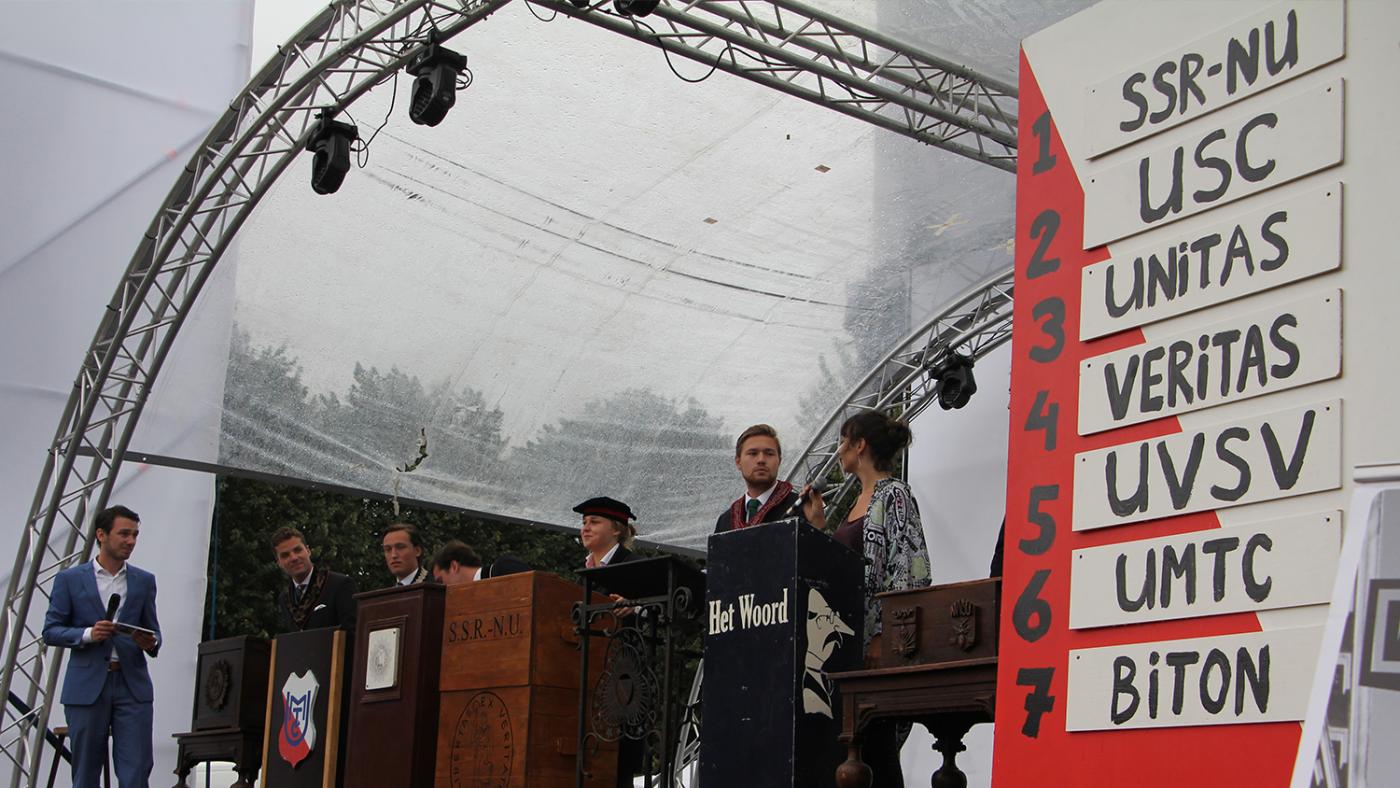
Unclear
The chairs of Aiesec, Biton, SIB, SSR-NU and Veritas are all of the opinion that the number of members does not reflect the amount of work the board has to do.
According to Hoekstra, associations with many members have relatively few activities. “Some sports clubs have a lot of members but few committees. It is not true that these boards have more work to do just because they have more members.” Hoekstra emphasises, however, that he is in favour of associations and sports associations receiving more money.
SSR-NU's chair Van Dam says: “By only looking at the number of members, small-scale associations, which organise many social and educational activities, are losing out. We’ve put a lot of time into establishing our identity as a Christian student association focused on depth and reflection. That is not included at all in the new policy.” Veritas’ chair also believes that the “output”, meaning the organisation of various events, should be taken into account as that would better reflect the amount of work members have on their plates.
International student organisation Aiesec is different from other student organisations in that they have no members and students work for it as volunteers. With the new system, they will have to argue about how many board grants they are entitled to. “That makes for a significant amount of uncertainty,” says chairperson Schonk. “Moreover, by only looking at the number of members, they are ignoring Aiesec's social impact.”
According to the student organisations affected, board members shouldn't receive less money each month. The chairpersons of SIB, Biton, Aiesec and SSR-NU indicate that they already have to put a lot of effort into finding successors every year. They expect that the new regulation will make it even harder. “A board year will only be accessible to those who can afford it,” ponders Hoekstra.
At Veritas, board grants are also used to financially compensate committee members active in committees that take up a lot of time, such as the UIT and introduction committees. Paquay fears that these committees will become less attractive and thus more difficult to fill.
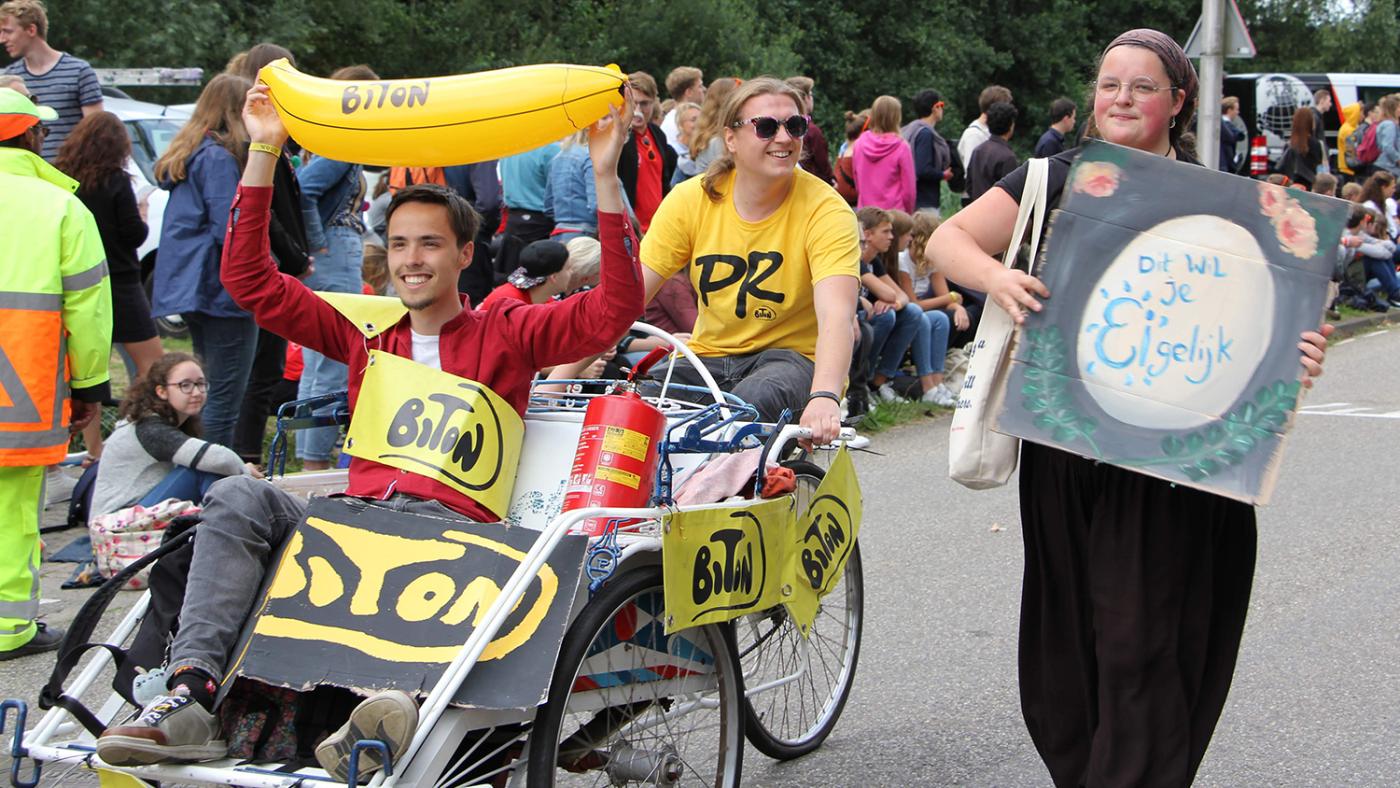
Clusters
The considerable differences in the extent to which associations will be hit by the new measures can be attributed to the fact that student organisation clusters are disappearing. In the old system, student associations and organisations competed with each other within a cluster for the number of board grants.
In addition, the amount of funding available for boards differed between the eight clusters, which was perceived as unfair by some board members. Historically, things have developed in such a way that more money was available in the "social association" cluster, which included Veritas, Biton and SSR-NU.
In the new system, the number of board grants will be reduced for social associations more so than for other types of organisations. Only UVSV and USC will not not affected. On the contrary: these two associations will receive more money from the university.
Other clusters include the "sports associations", which comprises Triton, Spin and USHC; "art and culture", "philosophical and spiritual" and "umbrella organisations". SIB falls into the "international" cluster. In the old system, it used to get more funds because the university considers internationalisation important.
Transition
To ease the pain brought about by the new measures, UU has come up with a transitional arrangement for the organisations that will lose out. They will not lose all their grants immediately. Instead, they will receive half of the grants for the next three academic years. SIB, for example, will lose 53 administrative units, but will still get 27 of them until the 2027-2028 academic year.
The student associations indicate that this arrangement gives them more breathing space. Only SIB says it needs more time to adjust. Van Duifhuizen: “Our board members can no longer do full-time board work and a major reform will therefore take longer.”
The new framework will be discussed by the University Council on April 22. The council will also be voting on it.
Rector Henk Kummeling reacts in a written statement: “Student organisations need to be seen and appreciated for what they do. However, these organisations and their activities are so diverse that it is very difficult to assess them transparently and fairly, hence UU's choice to test student organisations more generically, based on the number of members."
“The redistribution of administrative grants and subsidies was a response to the wishes of student organisations themselves. We expect approximately three-quarters of the organisations to make financial progress as a result of more administrative grants and/or higher subsidies. A few organizations will probably see a reduction in administrative grants and/or subsidies. That is why we are implementing a transition period. Considering student organisations as a whole, there is now more financial leeway. As for organisations in danger of experiencing major financial problems, we are prepared to look into solutions together.”